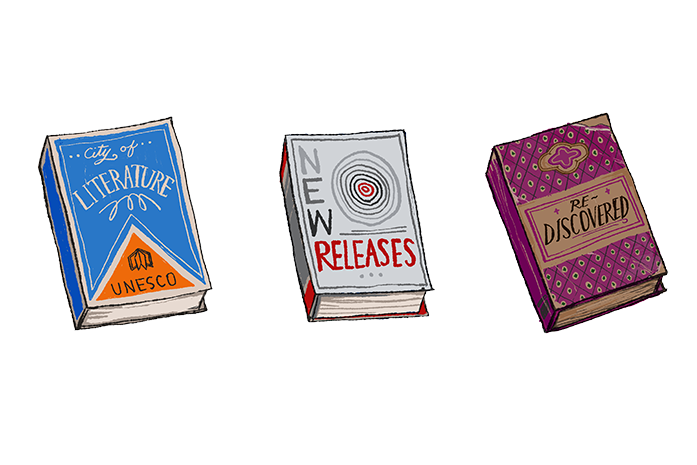CITY OF LITERATURE
The Weight of Shadows by José Orduña
At just 2 years old, José Orduña and his family immigrated to Chicago from their native Cordoba, Veracruz. Years later, Orduña went on to graduate from the University of Iowa Nonfiction Writing Program. He still lives in Iowa City, so he won’t have to travel far for his reading at Prairie Lights, 15 S. Dubuque, at 7 p.m. today.
In The Weight of Shadows, Orduña reflects on the path he took to become a U.S. citizen. Following the 9/11 terrorist attacks, immigrants were labeled as outsiders, so Orduña looks at what it means, for him, to be an American.
Fearlessly, Orduña dives into the political turmoil, interweaving facts and personal experience seamlessly.
NEW RELEASE
Hamilton: The Revolution, by Lin-Manuel Miranda and Jeremy McCarter
Hamilton truly is a revolution. The Broadway musical has won countless awards for the stage, and Lin-Manuel Miranda just won a Pulitzer Prize for Drama for his script. The show — and Miranda — played a role in keeping Alexander Hamilton on the $10 bill, which was just announced.
Miranda, with theater artist and critic Jeremy McCarter, details the years-long process of realizing
Hamilton. The book is perfect for theater lovers and gossip fans, because it spills all the behind-the-scenes details — even reprints of personal emails — and includes photographs of the cast and notable fans (Hello, Mr. President).
RE-DISCOVERED
Wuthering Heights, by Emily Brontë
Emily Brontë only wrote one novel, and it’s a keeper. Brontë created monsters and did not apologize for it. Protagonists Heathcliff and Catherine are cruel, awful, and shocking. In a time in which any uncouth characters had to be explained, understood, and redeemed, Brontë broke the trope. Readers can sympathize with these people, but rarely do they condone their abominable choices.
Brontë, like her sisters, is a powerful writer, crafting long, strong sentences full of complex meaning and implications. She creates a full world without becoming overbearingly precise and dull. She paces the novel slowly enough to let readers absorb everything but not so slowly as to drag.







